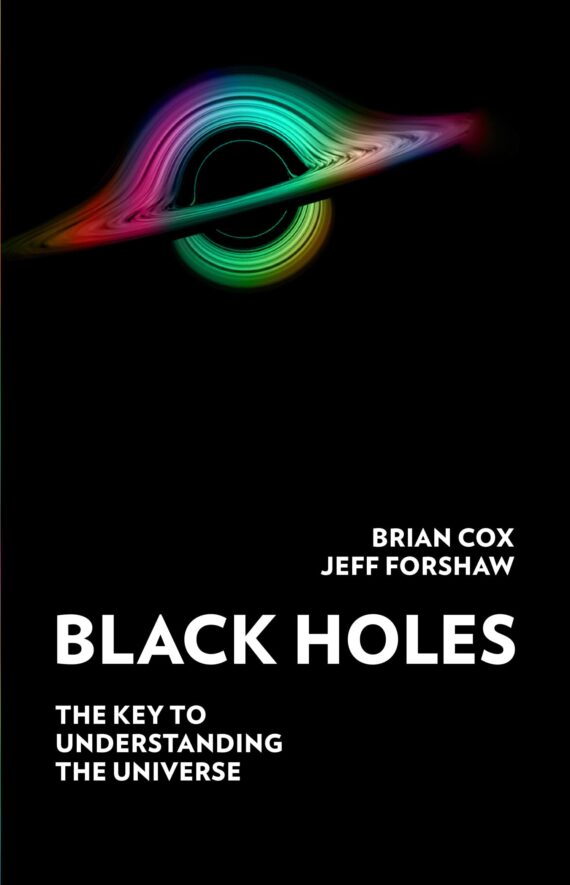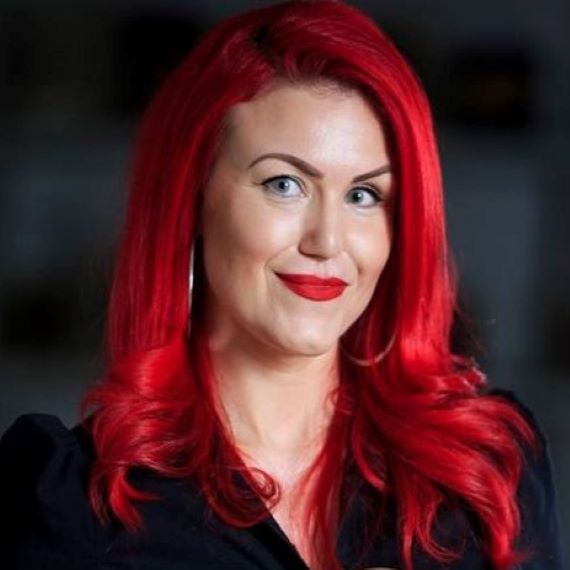
Science & Psychology
Black Holes by Brian Cox and Jeff Forshaw published today
06/10/2022

97.5k Instagram followers
17.6k Twitter followers
Carla Valentine studied Forensic and Biomolecular Science at university after working as an embalmer’s assistant and Quality Assurance Scientist during her gap year. She then trained as an Anatomical Pathology Technician (APT), or mortuary technician, receiving both her certificate and diploma in Anatomical Pathology Technology and progressing from trainee to Senior APT in a few years.
During her eight-year mortuary career, she continued her professional development by studying for an MSc in Forensic Anthropology at military college and taking part in skeletal excavations in Belgium and Venice. She carried out autopsies on a variety of deceased victims, including those killed in the 7/7 bombings in London, CBRN (Chemical, Biological, Radiological and Nuclear) and other high risk cases such as SARS, Swine Flu and CJD (commonly referred to as ‘mad cow disease’).
Since beginning work at Barts Pathology Museum, Carla has been featured in the Sunday Times, Stylist magazine, the Independent and the Guardian, and has written about her pro profession for the Association of Anatomical Pathology Technologists, the Huffington Post and Londonist. She writes for magazines as varied as the tattoo publication Things and Ink, the baking bible Beaten and Creamed and the official Agatha Christie website.
Carla co-presented Fatberg Autopsy for Channel 4 and was involved in the PR campaign for the computer game Resident Evil 6. She consulted on The Wellcome Collection’s forensic science exhibition entitled ‘Forensics: The anatomy of crime’, which received record numbers of visitors, and the London edition of the Bodyworlds plastinate exhibit.
‘Valentine manages to stay collected and professional about all the blood, guts and thrillingly exposed fibrous muscle’ – The Times
Carla Valentine
Carla Valentine works with the dead: she’s your average woman who just happens to know as much about corpses as she does cocktails. After studying forensics, she assisted pathologists with post-mortems for years, before eventually becoming the curator of the world’s most famous pathology museum. When it comes to death, she truly is a world-class expert, and in this book she shares that expertise.
Using the most common post-mortem process as the backbone of the narrative, Past Mortems maps out one girl’s life in death. Taking the reader through the process of an autopsy whilst also describing the history and changing cultures of our relationship with the dead, the book is full of vivid insight into what happens to our bodies in the end. Each chapter considers an aspect of an autopsy alongside an aspect of Carla’s own life and work, and touches on some of the more controversial aspects of our feelings towards death, including the relationship between sex and death and our attitudes to human tissue collection.
Starting with the first cut, we move from external examination into the body itself, discovering more about the heart, the stomach and the brain, and into dismembered and reconstructed bodies, at each stage taking a colourful detour into the question of what these things can teach us about the living. Join Carla on the journey from microscope-requesting nine-year-old to pathology educator and death engager at a Victorian museum (a journey made via around 5000 autopsies) as she tells the story of exactly what it’s like to live a life immersed in death.
Carla Valentine
Agatha Christie is one of our most beloved authors – a storyteller unparalleled in her clever plots and twisting tales. But Agatha was also a forensic expert; in each of her books she employs an expert weaving of human observation, ingenuity and genuine science of the era.
In Murder Isn’t Easy Carla Valentine illuminates all of Agatha’s incredible knowledge, showing how she stayed at the cutting edge of forensics from ballistics to fingerprint analysis, as seen through much-loved characters such as Poirot and Miss Marple.
From the glamour and grit of Agatha Christie’s stories, to the real-life cases that inspired them, Murder Isn’t Easy will immerse you in the forensics that influenced generations of writers and scientists alike.